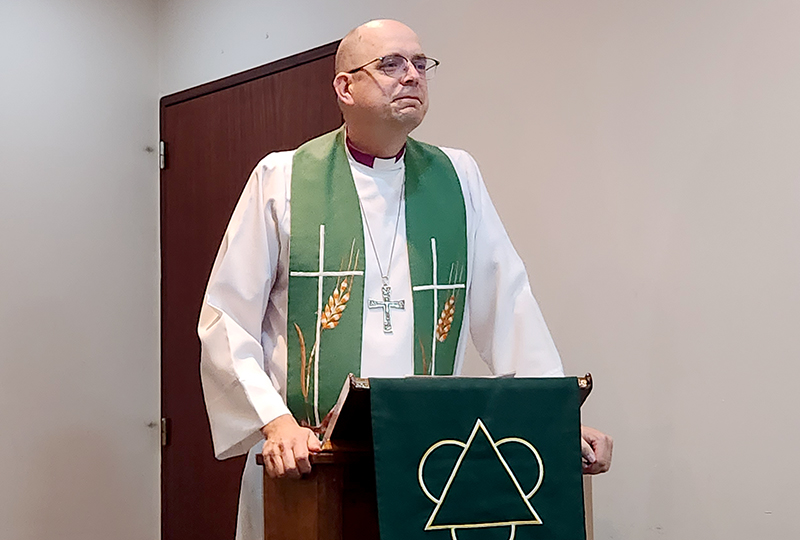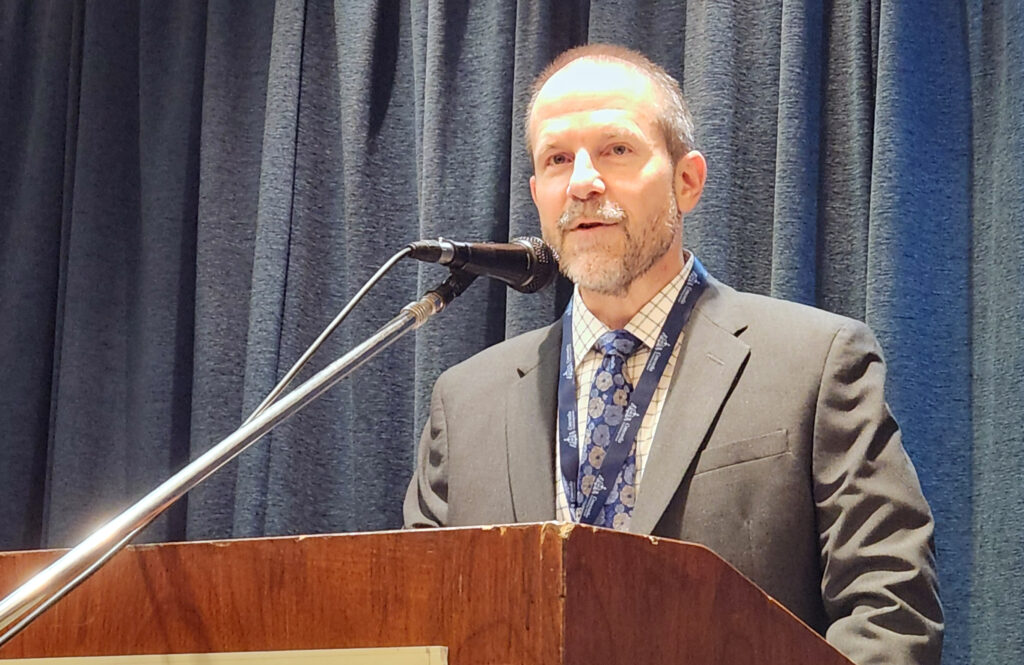
ARGENTINA – The final morning of the International Lutheran Council’s (ILC) 2024 World Seminaries Conference turned to a discussion of the competencies necessary for the training of pastors and deaconesses.
The day began with a service of Matins, with the ILC’s Chairman, Bishop Juhana Pohjola, preaching. Following this, the conference heard a presentation from Rev. Dr. Ron Mudge, Provost of Concordia Seminary (St. Louis, Missouri) on “Core Competencies for Theological Education Leading to Ordination/Deaconess Certification.”
Dr. Mudge stressed Martin Luther’s threefold declaration of what makes a theologian: oratio (prayer), meditatio (meditation), and tentatio (temptation or assaults by the devil). He then turned to an analysis of the competencies which are expected of pastoral graduates by Concordia Seminary (St. Louis, Missouri) and Concordia Theological Seminary (Fort Wayne, Indiana). He noted that while the two seminaries organize their outcomes differently, “there is a lot of overlap.”
Dr. Mudge explained that in both seminaries the competencies required of pastors fall into three broad categories: “what a pastor should know, be, and do.” He explained the distinctions in this way: “Knowledge might include familiarity with the content of the Bible and the Greek language. When we talk about what a pastor should be, that has to do with his identity and beliefs, for example, his belief that the Bible is the inerrant Word of God. When we talk about what a pastor should do, we are talking about skills that apply to the Pastoral Ministry, such as preaching.”

Knowing what competences are required is one thing, Dr. Mudge said, but it is equally important that seminaries be able to verify that a student has developed the competencies in question. “It is often easiest to verify knowledge,” he noted, “a bit more difficult to verify skills, and more difficult still to verify identity and beliefs.” Seminaries help students achieve these goals as they “cultivate prayer and meditation on God’s Word” among students, he said, and “give students resources for when the assaults of Satan come.”
Training for deaconesses requires many competencies similar to that of pastoral students. “Deaconesses speak the Gospel and engage in acts of mercy under the supervision of a pastor,” Dr. Mudge explained. “While they have some of the same competencies that a pastor has, these competencies are applied in the specific context of their role as deaconesses.”
Participants received the full list of competencies, outcomes, and performance indicators used by Concordia Seminary and Concordia Theological Seminary in the hope that they might be useful to other seminaries as they evaluate their own theological education. Seminaries must always “strive to make adjustments that will help our students achieve these competencies even better,” Dr. Mudge said. “We also strive to develop ways of verifying that our students have achieved these specific competencies. This is challenging work, and we ask the Lord to give us wisdom, to guide us, and to use our seminaries to provide faithful pastors and deaconesses to serve Him in our world.”
Delegates then enjoyed plenary discussion on the core competencies for the training of pastors and deacons.
The morning closed with feedback on this year’s conference and initial preparation for the next World Seminaries Conference. The convention also recognized the work of translators, the conference chaplain, and organizers who helped to make the conference possible.
———————
Find more news on the ILC’s 2024 World Seminaries Conference here.
